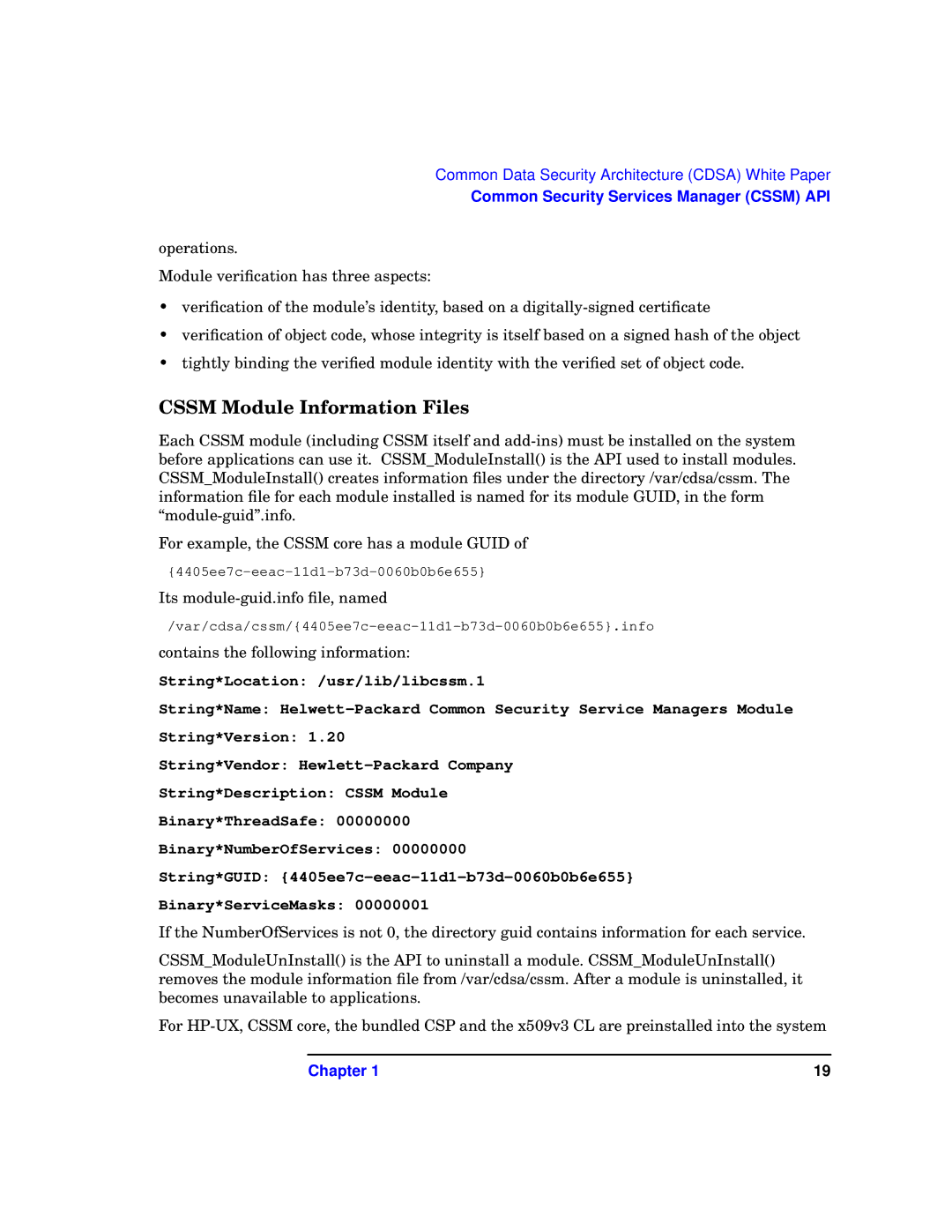Common Data Security Architecture (CDSA) White Paper
Common Security Services Manager (CSSM) API
operations.
Module verification has three aspects:
•verification of the module’s identity, based on a
•verification of object code, whose integrity is itself based on a signed hash of the object
•tightly binding the verified module identity with the verified set of object code.
CSSM Module Information Files
Each CSSM module (including CSSM itself and
For example, the CSSM core has a module GUID of
Its
contains the following information:
String*Location: /usr/lib/libcssm.1
String*Name:
String*Version: 1.20
String*Vendor:
String*Description: CSSM Module
Binary*ThreadSafe: 00000000
Binary*NumberOfServices: 00000000
String*GUID:
Binary*ServiceMasks: 00000001
If the NumberOfServices is not 0, the directory guid contains information for each service.
CSSM_ModuleUnInstall() is the API to uninstall a module. CSSM_ModuleUnInstall() removes the module information file from /var/cdsa/cssm. After a module is uninstalled, it becomes unavailable to applications.
For
Chapter 1 | 19 |
